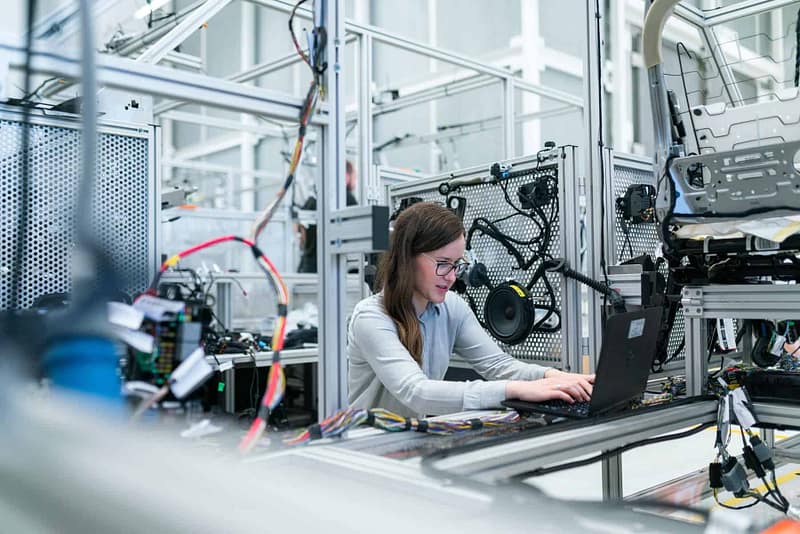This changing landscape on the factory floor has helped manufacturers reduce costs and increase productivity. It has been a boon to small manufacturers as they narrow the gap on the economies of scale that their larger counterparts enjoy.
Advanced technologies enable management and measurement of all aspects of the manufacturing process while controlling labor costs. They reduce dependency on manual labor, increase the quality of end products, and make the factory floor run more efficiently.
Machines execute complex fabrications with minimal movement and energy. Longer production runs can be scheduled under the watchful eye of performance sensors that generate alerts when maintenance or production problems occur.
Factory automation allows employers to keep their workers safe. When robotics handle dangerous, toxic or unpleasant tasks under the supervision of skilled workers, accident rates fall and workers lower their health risks.
Examples of modern manufacturing technology include:
- Integrated software applications to address product lifecycle management, enterprise resource planning and manufacturing execution.
- Robotics, which perform routine, repetitive tasks with far greater speed and accuracy than human beings.
- The Internet of Things (IoT), which links intelligent devices to master controls (servers). This makes it possible to track activity (and take corrective action, as needed) across the whole manufacturing workflow.
- Automated measurement systems to assess performance proactively and report conditions that demand attention.
- Maintenance management software to record and track the factory’s maintenance needs (preventive, remedial, urgent) and manage them through a comprehensive work order scheduling and notification system.
- Data-driven analytics that pinpoints areas for improvement and ways to manage production runs to minimize downtime for retooling and resetting equipment.
- 3D printing, which can handle rapid prototyping and allows for “just in time” manufacturing, rather than placing bulk orders and wasting money on storage of products.






